Esophageal Surgery in Turkey: Because Swallowing Shouldn’t Be a Battle
Content
- Esophageal Surgery in Turkey: Because Swallowing Shouldn't Be a Battle
- Understanding the Esophagus and Its Functions
- Types of Esophageal Surgery in Turkey
- Recovery After Esophageal Surgery in Turkey
- Benefits of Esophageal Surgery in Turkey
- Risks and Complications of Esophageal Surgery
- Frequently Asked Questions (FAQs) About Esophageal Surgery in Turkey
Esophageal Surgery in Turkey: Because Swallowing Shouldn't Be a Battle
Introduction to Esophageal Surgery: Getting Back to Enjoying Every Bite
Let's face it, food is one of life's greatest pleasures. But when even swallowing becomes a struggle, it's a serious problem. Esophageal problems can range from the annoying (like persistent heartburn) to the downright scary (like cancer).
That's where esophageal surgery comes in. It's not just about fixing a medical issue; it's about getting you back to enjoying every delicious bite without a second thought.
And increasingly, people are discovering the benefits of seeking esophageal surgery in Turkey.
What Exactly Is Esophageal Surgery?
Think of your esophagus as the "food pipe" connecting your mouth to your stomach. Esophageal surgery is any procedure that addresses problems within that crucial pathway.
This could involve anything from repairing a hiatal hernia, removing a pesky tumor, or even reconstructing parts of the esophagus.
Why is Esophageal Surgery So Important?
Beyond the obvious (you know, eating!), esophageal surgery is crucial for several reasons:
- Restoring Your Swallowing Superpowers: Imagine enjoying a meal without pain, discomfort, or the fear of choking. That's the primary goal.
- Taking Out the Bad Guys: If cancer is present, surgery is often the best way to remove the tumor and prevent it from spreading.
Esophageal tumor removal in Turkey is performed by some of the best esophageal surgeons in Turkey, right here at Cevre Hospital in Istanbul.
- Boosting Your Quality of Life: Living with a serious esophageal condition can be draining. Surgery can offer a significant improvement in your overall well-being.
And let's be honest, who wouldn't want to enjoy Turkish cuisine to the fullest?
Understanding the Esophagus and Its Functions
So, we've talked about what esophageal surgery is and why it might be necessary, and why esophageal surgery in Turkey, particularly in Istanbul, is a great option.
But let's take a step back and appreciate the amazing piece of engineering that is your esophagus.
It's more than just a tube; it's a sophisticated system designed to make sure every meal goes down smoothly (literally!).
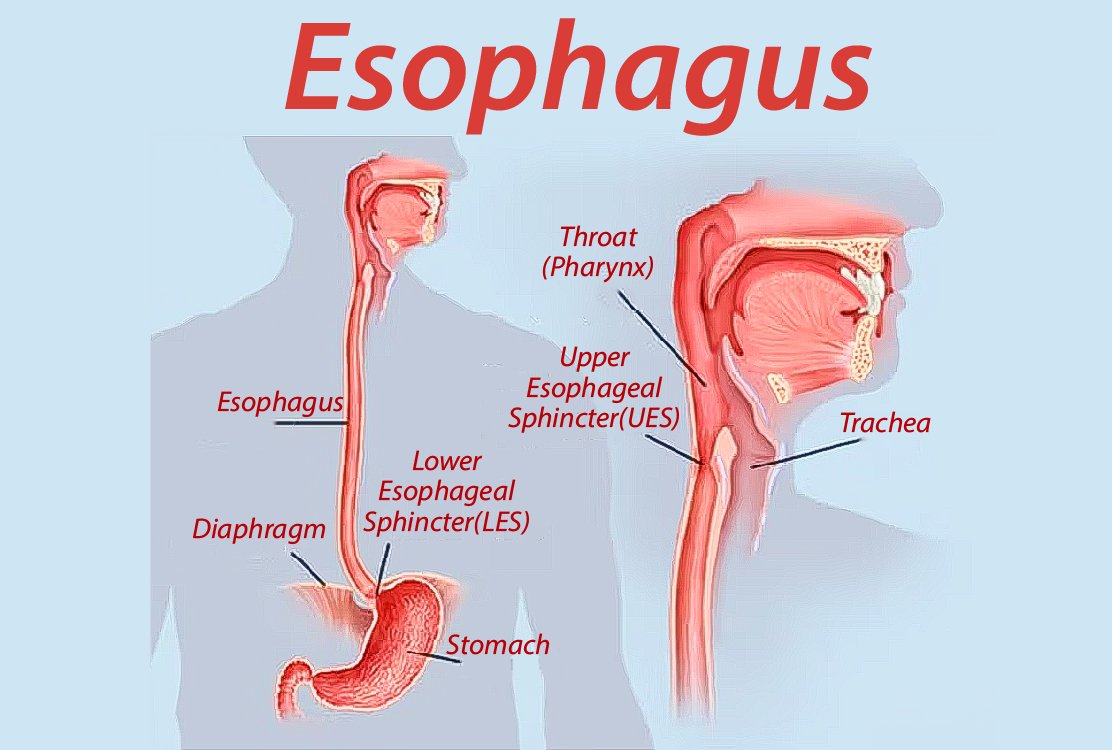
Location and Structure: Where Does This "Food Pipe" Actually Go?
Imagine a highway connecting your throat (pharynx) to your stomach. That's your esophagus!
It's a muscular tube, about 10 inches long in adults, that sits behind your windpipe (trachea) and in front of your spine. It's not just a hollow pipe, though.
It's made of layers of muscle that work together in a coordinated way. Think of it like a perfectly choreographed dance, moving food and liquids along.
And like many people seeking the best treatment they choose to undergo this life changing procedure in Istanbul, undergoing any type of esophageal surgery in Turkey is a popular choice, particularly procedures like esophagectomy in Turkey and esophageal reconstruction in Turkey.
Key Functions: More Than Just a Slide!
The esophagus isn't just a passive chute. It has two critical jobs:
- The Peristalsis Powerhouse: This is where the magic happens! "Peristalsis" might sound like a fancy word (and it is!), but it simply refers to the wave-like muscle contractions that push food and liquid down your esophagus.
It's like a gentle, internal squeeze that keeps things moving in the right direction. This is crucial, because it means you can swallow even if you're upside down (though we don't recommend making a habit of it!).
This is why esophageal myotomy surgery in Turkey and other procedures relating to the muscles of the esophagus are so important for a patient's well being.
If peristalsis is impaired, procedures like endoscopic esophageal surgery in Turkey may be considered.
- The Lower Esophageal Sphincter (LES): This is a ring of muscle at the bottom of the esophagus, where it meets the stomach. Think of it as a one-way valve.
It's supposed to open to let food in and then close tightly to prevent stomach acid from splashing back up.
When the LES doesn't work properly, you get heartburn, acid reflux, and potentially, the need for GERD surgery in Turkey or esophageal reflux surgery in Turkey. A properly functioning LES is key to avoiding that fiery feeling!
This is why the best esophageal surgeons in Turkey, located here at Cevre Hospital Istanbul, take these procedures with the highest degree of care and planning.
Many patients seek out hiatal hernia repair surgery in Turkey specifically because of the expertise available in Istanbul.
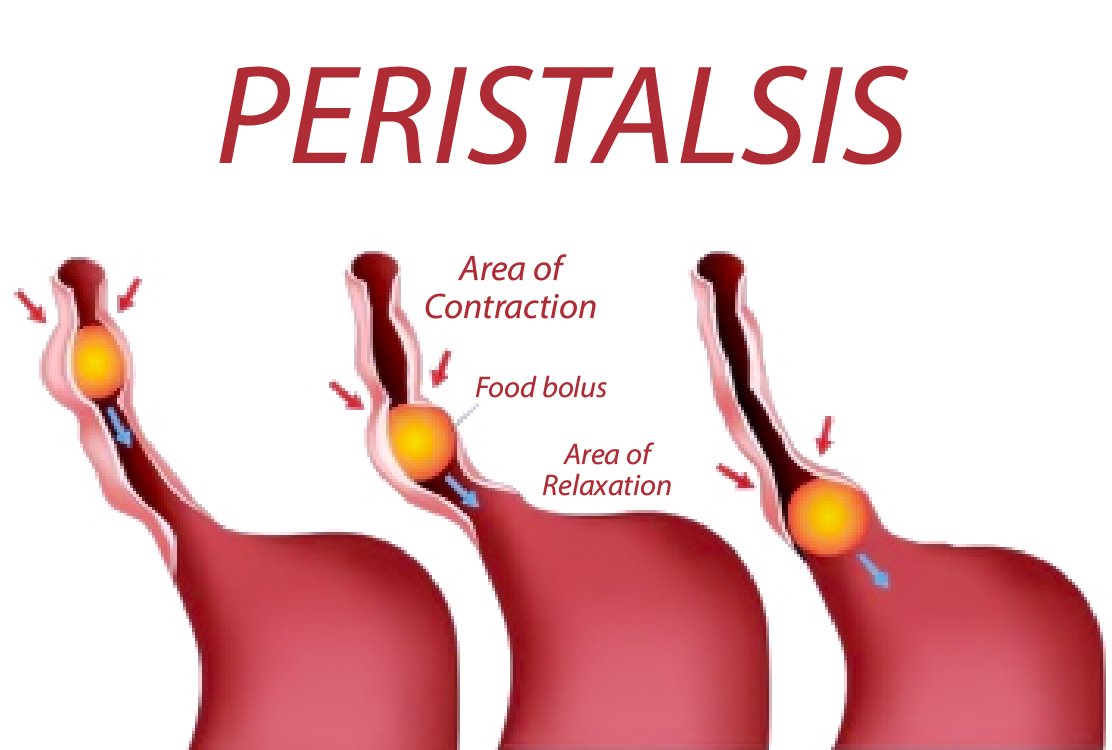
Types of Esophageal Surgery in Turkey
Now that you have a better understanding of the esophagus and its role, let's explore the different types of surgeries that can address various esophageal problems.
Remember, the best approach for you will depend on your specific condition, overall health, and the expertise of your surgeon.
And here at Cevre Hospital in Istanbul, we offer a comprehensive range of options, performed by some of the best esophageal surgeons in Turkey.
Many international patients are specifically seeking out esophageal surgery in Istanbul due to the city's reputation for medical excellence.
1. Esophagectomy (Removal of the Esophagus)
- What is it? This is a major surgery, and it's often a lifesaver. Esophagectomy in Turkey involves removing part or all of the esophagus, typically to treat esophageal cancer surgery in Turkey.
It's a complex procedure, and the expertise available in Turkey is a significant draw for many patients.
- What Does it Involve? After removing the affected portion of the esophagus, the surgeon reconstructs the pathway for food.
This is usually done by pulling up part of the stomach or using a section of the intestine. It's like building a new "food pipe."
This often involves esophageal reconstruction in Turkey, a specialized area of expertise at Cevre Hospital.
- Who Needs This Surgery? Primarily, patients with esophageal cancer. It can also be necessary for severe, irreversible damage from long-term GERD or, in rare cases, trauma.
In some cases, esophageal replacement surgery in Turkey may be part of the treatment plan.
- Types of Esophagectomy:
- Open Esophagectomy: This is the traditional approach, involving larger incisions.
- Minimally Invasive Esophagectomy (MIE): This is where Turkey, and specifically Istanbul, really shines. Minimally invasive esophageal surgery in Turkey, including techniques like laparoscopic esophageal surgery in Turkey and robotic esophageal surgery in Turkey, uses smaller incisions, leading to less pain, faster recovery, and potentially fewer complications.
Thoracoscopic esophagectomy in Turkey is another minimally invasive option. Many patients are choosing Turkey specifically for the availability of these advanced techniques.
- Open Esophagectomy: This is the traditional approach, involving larger incisions.
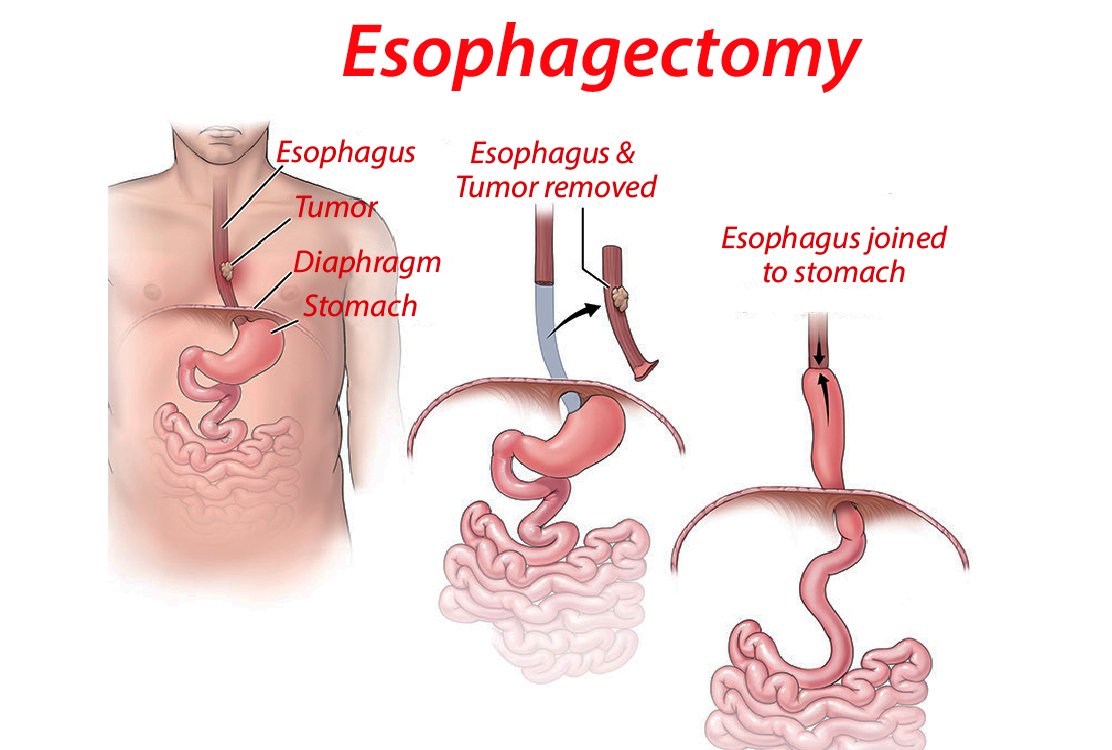
2. Fundoplication (GERD Surgery)
- What is it? This surgery is all about reinforcing that "gatekeeper" we talked about: the lower esophageal sphincter (LES).
Fundoplication, often referred to as GERD surgery in Turkey or esophageal reflux surgery in Turkey, strengthens the LES to prevent stomach acid from flowing back up.
- Who Needs This Surgery? People with chronic GERD that just won't quit, even with medication and lifestyle changes. Many patients find lasting relief with this procedure in Turkey.
- Common Types of Fundoplication:
- Nissen Fundoplication: This is the most common type. The upper part of the stomach is wrapped all the way around the lower esophagus, like a snug hug.
- Toupet Fundoplication: This is a partial wrap, offering a bit more flexibility.
- Nissen Fundoplication: This is the most common type. The upper part of the stomach is wrapped all the way around the lower esophagus, like a snug hug.
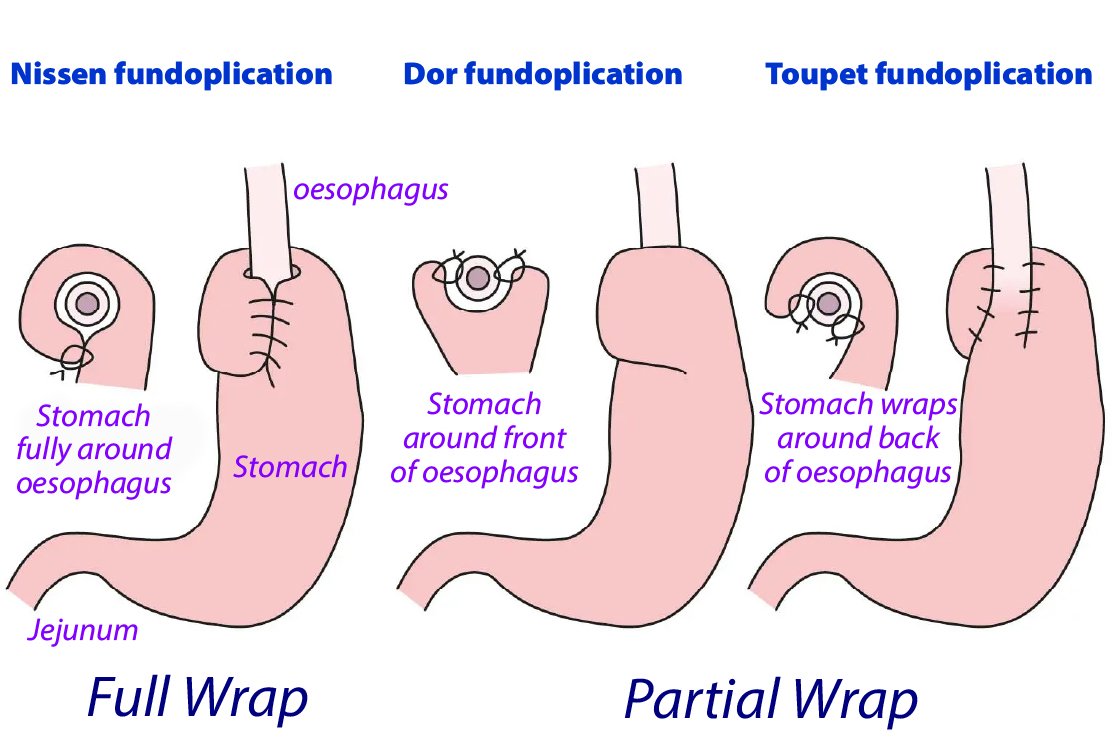
3. Heller Myotomy (Achalasia Surgery)
- What is it? If you have achalasia, your esophagus has trouble pushing food down into your stomach.
Heller Myotomy, a key type of achalasia surgery in Turkey, involves carefully cutting the muscles of the lower esophagus to relax them and allow food to pass through more easily.
- Who Needs This Surgery? Patients diagnosed with achalasia.
- Minimally Invasive Option: POEM (Peroral Endoscopic Myotomy): This is a cutting-edge, less invasive technique performed endoscopically (through the mouth), with no external incisions.
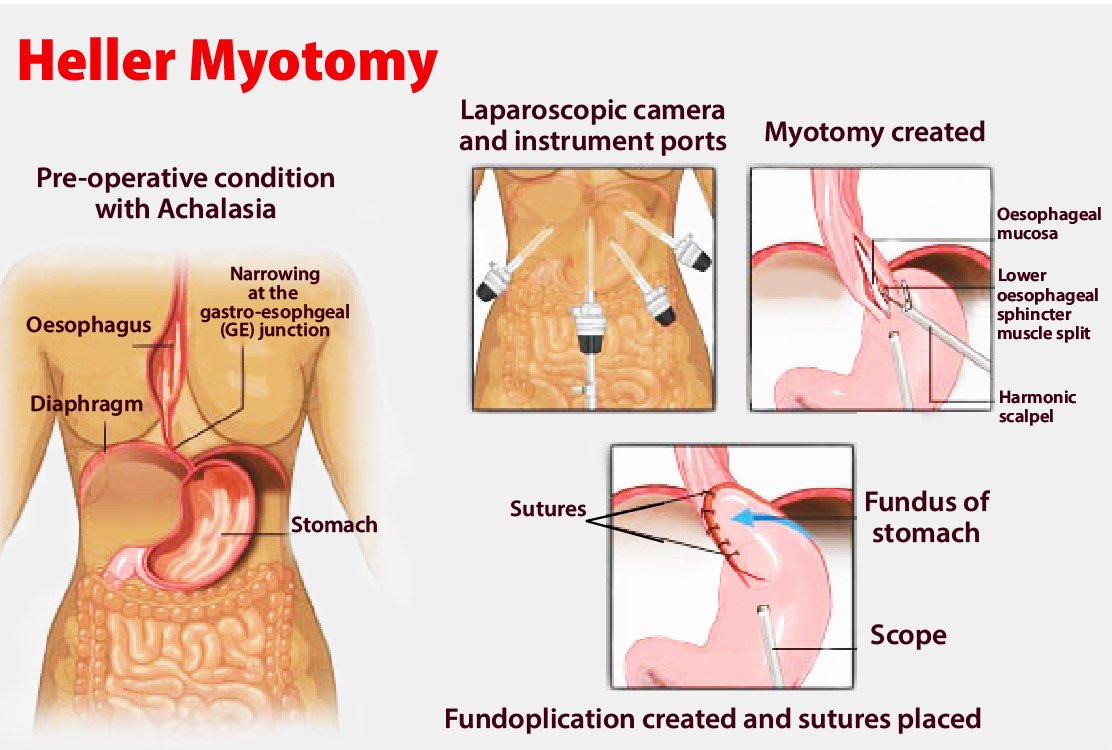
4. Esophageal Dilation (Stricture Treatment)
- What is it? If your esophagus has narrowed (a stricture), this procedure uses special tools (balloons or dilators) to gently stretch it open.
Think of it like widening a narrow hallway. This is often the core procedure within esophageal stricture surgery in Turkey.
- Who Needs This Surgery? People with esophageal strictures, which can be caused by scar tissue from GERD, inflammation, or other conditions.
- Is It Permanent? Sometimes, one dilation is enough. But strictures can sometimes come back, requiring repeat treatments.
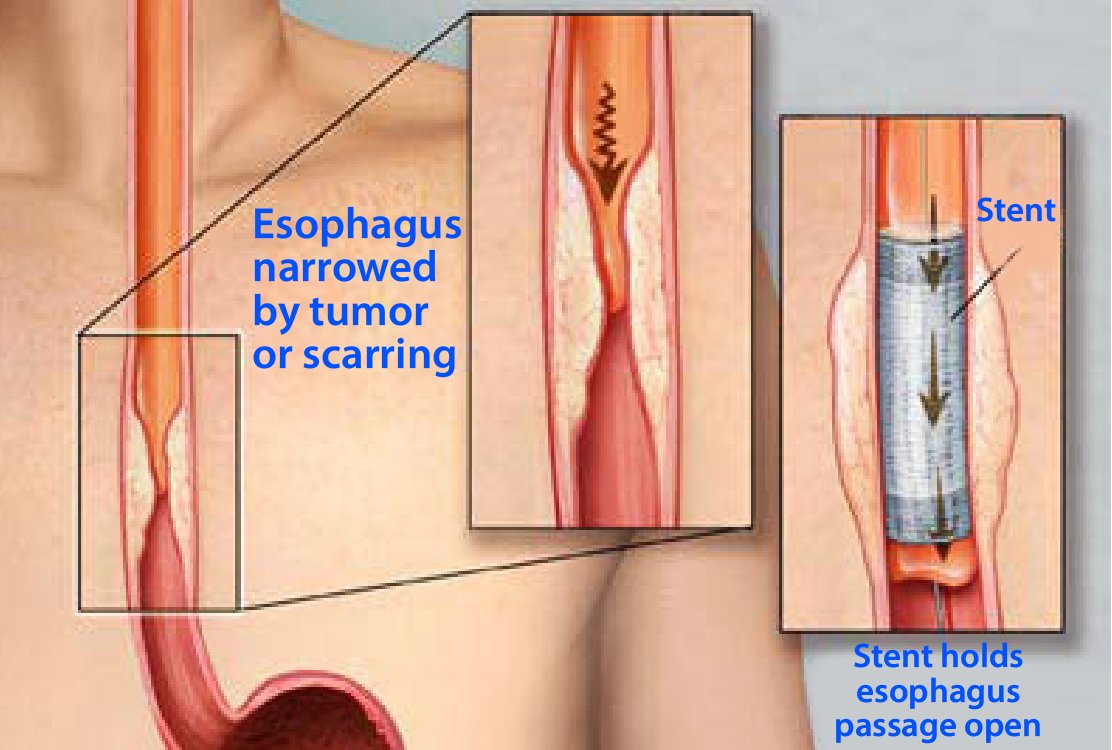
5. Esophageal Stent Placement
- What is it? A stent is a small, expandable tube (often made of metal mesh) that's inserted into the esophagus to hold it open. This is a common component of esophageal stent placement in Turkey.
- Who Needs This Surgery? This is often used for patients with advanced esophageal cancer to help them swallow more comfortably.
It can also be used for severe strictures that don't respond to other treatments. It's a valuable option for improving quality of life.
- Temporary or Permanent? Stents can be temporary or permanent, depending on the situation. Often, they're used for palliative care: to improve quality of life, rather than to cure the underlying condition.
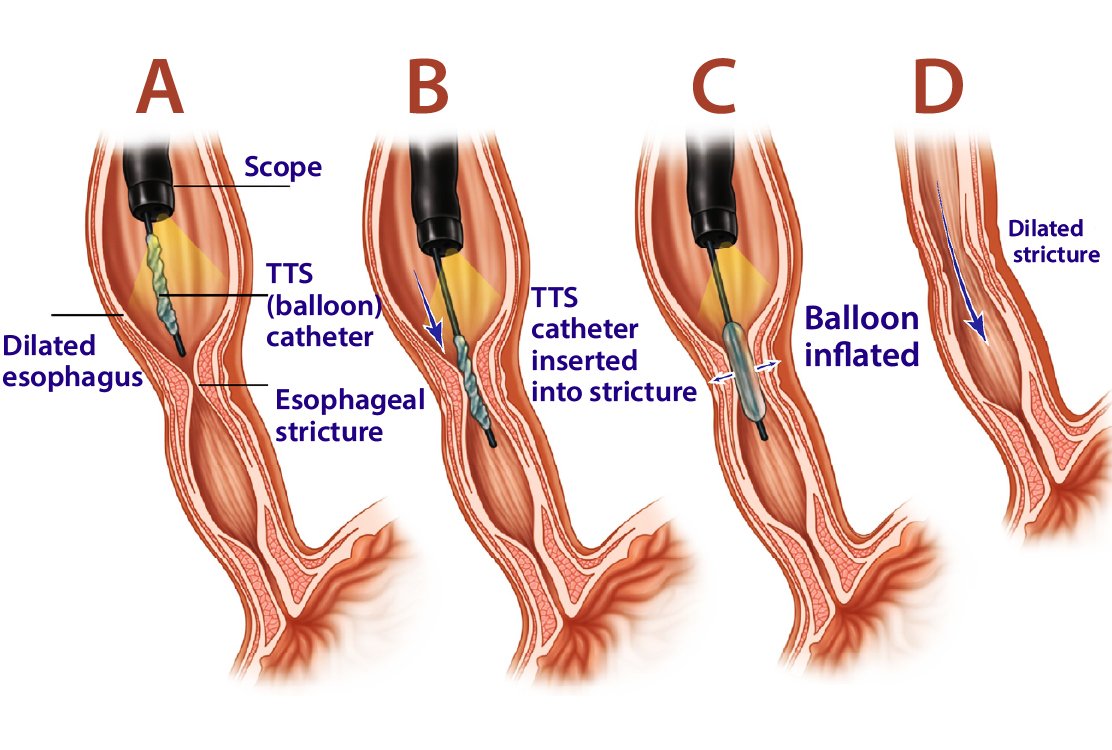
Recovery After Esophageal Surgery in Turkey
So, you've made the decision to undergo esophageal surgery in Turkey, and you're likely wondering what the recovery process looks like. It's natural to have questions and maybe even a little apprehension.
At Cevre Hospital in Istanbul, we believe in transparency and support, so let's walk through what you can expect, step by step. Remember, everyone's journey is unique, but this will give you a good general idea.
And choosing to have your procedure, for example, Esophageal cancer surgery in Turkey, with us, we will support you before, during and long after.
Many patients find the recovery process in Istanbul to be surprisingly pleasant, thanks to the city's beauty and supportive medical environment.
1. Hospital Stay and Immediate Post-Op Care
- The Hospital Stay: After your surgery, you'll typically spend anywhere from 5 to 14 days in the hospital.
This depends on the specific procedure you had (for example, minimally invasive esophageal surgery in Turkey, such as laparoscopic esophageal surgery in Turkey or robotic esophageal surgery in Turkey, usually means a shorter stay than open surgery) and how well you're recovering.
The cost of esophageal surgery in Turkey often includes this hospital stay, making it a cost-effective option. Even after complex procedures like transhiatal esophagectomy in Turkey, our team provides exceptional post-operative care.
- Pain Management: Let's be honest, surgery isn't a walk in the park. But we're here to make you as comfortable as possible. You'll receive pain medication to manage any discomfort.
We'll work with you to find the right balance, keeping you comfortable while also allowing you to be alert and participate in your recovery.
Our pain management protocols are designed to minimize discomfort and promote healing.
- Feeding: Initially, you won't be eating or drinking anything by mouth. This gives your esophagus time to heal. You'll likely have a feeding tube (either through your nose or directly into your stomach) to provide the nutrition you need. Don't worry, this is usually temporary!
This allows your body to receive the necessary nutrients while your esophagus recovers, whether you've had esophageal tumor removal in Turkey or another procedure.
2. Home Recovery and Lifestyle Adjustments
- The Gradual Return to Eating: This is a big one! You'll start with clear liquids, then gradually progress to pureed foods, soft foods, and eventually, a more regular diet. It's like learning to eat all over again, but in a good way!
Your surgical team, potentially including specialists in gastrointestinal surgery in Turkey, will provide specific guidelines.
This careful progression is crucial for successful recovery after any type of esophageal surgery, including esophageal stricture surgery in Turkey and hiatal hernia repair surgery in Turkey.
- Small and Frequent: Forget about three large meals a day, at least for a while. You'll be eating smaller, more frequent meals to avoid putting too much stress on your healing esophagus.
Think of it as grazing throughout the day.
- Taking it Easy: You'll need to avoid heavy lifting, strenuous exercise, and anything that puts too much strain on your abdomen for several weeks. This is not the time to start training for a marathon!
Your body needs time to heal. This is especially important after procedures like esophageal replacement surgery in Turkey.
- Managing Reflux: Even after surgery, some people may experience some GERD symptoms. If this happens, we'll work with you to manage it, whether it's through medication, lifestyle changes, or other strategies.
Esophageal reflux surgery in Turkey aims to minimize this, but it's important to be prepared. Our team is experienced in managing any post-operative reflux.
3. Follow-Up and Long-Term Care
- Regular Check-ups: You'll have regular follow-up appointments with your surgeon and, potentially, a gastroenterologist. These appointments are crucial to monitor your progress and address any concerns.
These are often included when considering the overall cost of esophageal surgery in Turkey, providing comprehensive care.
- Endoscopic Evaluations: You may need periodic endoscopic evaluations (where a thin, flexible tube with a camera is used to look inside your esophagus) to check on the healing process and make sure everything looks good.
This is especially important after procedures like esophagectomy in Turkey or esophageal reconstruction in Turkey.
Endoscopic esophageal surgery in Turkey may also be used for follow-up evaluations.
- Getting Stronger: Physical therapy and breathing exercises can help you regain your strength and lung capacity, especially after more extensive surgeries.
It's all about getting you back to your best self. We offer support and guidance to help you regain your full strength and vitality.

Benefits of Esophageal Surgery in Turkey
We've talked about what esophageal surgery is, how it's done, and what recovery looks like. But let's get to the heart of the matter: why choose esophageal surgery? What are the real-life benefits that can make such a difference in your well-being?
At Cevre Hospital in Istanbul, we see these benefits unfold every day, and we're passionate about helping our patients reclaim their lives.
And with the growing popularity of medical tourism, more and more people are discovering the advantages of esophageal surgery in Turkey.
Let's break it down. The benefits of esophageal surgery in Turkey can be truly transformative, and they often extend far beyond just the physical:
- Say Goodbye to Swallowing Struggles: This is the big one! Whether you've been battling achalasia, a stricture, or another condition that makes swallowing difficult, surgery can restore your ability to eat and drink without pain, discomfort, or fear of choking.
Imagine enjoying a meal with friends and family without a second thought: that's the freedom we're talking about.
This is a key benefit that resonates with anyone considering achalasia surgery in Turkey or esophageal stricture surgery in Turkey.
Even complex cases often benefit from the expertise found in Istanbul.
- Kiss Heartburn Goodbye: For those suffering from chronic GERD, GERD surgery in Turkey (like fundoplication, a common type of esophageal reflux surgery in Turkey) can offer long-term relief from that persistent burning sensation.
Imagine a life free from antacids and the constant worry of acid reflux. That's a powerful motivator for many seeking treatment.
The success rates for these procedures in Turkey are very encouraging.
- A Fighting Chance Against Cancer: When it comes to esophageal cancer surgery in Turkey, surgery (often esophagectomy in Turkey, and sometimes including esophageal tumor removal in Turkey as a preliminary step) is frequently the primary treatment.
It offers the best chance of removing the tumor and preventing its spread. This is a serious situation, and the expertise available in Istanbul is a crucial factor for many patients.
The best esophageal surgeons in Turkey are often trained in the latest techniques, including minimally invasive approaches.
- Improved Quality of Life: Living with an esophageal condition can be incredibly challenging. It can affect your diet, your social life, your sleep, and your overall well-being.
Surgery can address the underlying problem and help you get back to living a fuller, more enjoyable life.
This is the ultimate goal, whether you're undergoing hiatal hernia repair surgery in Turkey, esophageal diverticulum surgery in Turkey, or any other procedure.
This improvement in quality of life is a major reason why people choose esophageal surgery in Turkey.
- Peace of Mind: Knowing you've taken proactive steps to address a serious health issue can bring immense peace of mind.
You're no longer just managing symptoms; you're actively working towards a solution. And choosing a reputable facility like Cevre Hospital, known as one of the best hospitals for esophageal surgery in Turkey, can further enhance that sense of security.
Knowing you're in the hands of experienced professionals makes a significant difference

Risks and Complications of Esophageal Surgery
It's important to be completely open and honest: any surgery, including esophageal surgery, carries some degree of risk. We believe in empowering our patients with knowledge, so let's talk about potential complications, both short-term and long-term.
But remember, at Cevre Hospital in Istanbul, we take every precaution to minimize these risks, and we have the expertise to manage them effectively if they do occur.
We have a proven track record and are considered to be among the best hospitals for esophageal surgery in Turkey.
Our commitment to patient safety is paramount, regardless of the specific procedure, from Barrett's esophagus treatment in Turkey to complex reconstructions.
Short-Term Risks
Like any major surgery, there are some potential short-term risks associated with esophageal procedures:
- Bleeding and Infection: These are risks with any surgical procedure. We use meticulous techniques and sterile protocols to minimize these risks.
Our surgeons, considered to be among the best esophageal surgeons in Turkey, are highly skilled in preventing and managing these complications.
Their expertise extends to all types of esophageal surgery, including esophageal myotomy surgery Turkey.
- Difficulty Swallowing (Dysphagia): It's common to experience some difficulty swallowing immediately after surgery.
This is usually temporary, as swelling goes down and your esophagus heals.
Your care team will guide you through the gradual diet progression we discussed earlier.
This is a common concern, but our team is experienced in helping patients regain comfortable swallowing, even after procedures like esophageal replacement surgery in Turkey.
- Leaks: In procedures like esophagectomy in Turkey or esophageal reconstruction in Turkey, where connections are made between different parts of the digestive tract, there's a small risk of leakage.
Our surgeons use advanced techniques to minimize this risk, and we monitor you closely for any signs of a leak.
This is a critical area of focus, and our surgeons are highly trained in preventing and managing such complications.
Minimally invasive techniques, like laparoscopic esophageal surgery in Turkey and robotic esophageal surgery in Turkey, can also help reduce this risk.
Long-Term Complications
While most patients recover well from esophageal surgery in Istanbul, there are some potential long-term complications to be aware of:
- GERD or Acid Reflux: If the surgery affects the lower esophageal sphincter (LES), you might experience some acid reflux. This is more common with certain procedures than others.
We often address this proactively, and in many cases, GERD surgery in Turkey (including esophageal reflux surgery in Turkey) is actually performed to resolve reflux, not cause it.
Our comprehensive approach aims to minimize this risk.
- Strictures: Sometimes, scar tissue can form and narrow the esophagus, leading to swallowing difficulties.
This may require esophageal stricture surgery in Turkey, or a dilation procedure (as we discussed earlier).
Even if strictures develop, we have effective treatment options available.
- Nutritional Deficiencies: Depending on the extent of the surgery, some patients may experience changes in digestion that can lead to nutritional deficiencies.
Our team includes dietitians who can help you create a meal plan to ensure you're getting all the nutrients you need.
This is particularly important after extensive procedures like transhiatal esophagectomy in Turkey.
Minimizing Risks: The Cevre Hospital Advantage in Istanbul, Turkey
While we can't eliminate risks entirely, we can significantly reduce them.
Here's how Cevre Hospital in Istanbul stands apart:
- Experienced Surgeons: Our team includes some of the best esophageal surgeons in Turkey, with extensive experience in all types of esophageal procedures, including minimally invasive esophageal surgery in Turkey, laparoscopic esophageal surgery in Turkey, and robotic esophageal surgery in Turkey.
They are also skilled in performing procedures like esophageal diverticulum surgery in Turkey and achalasia surgery in Turkey.
- Advanced Technology: We utilize the latest technology, including advanced imaging and surgical tools, to enhance precision and minimize invasiveness.
This commitment to technology contributes to better outcomes and reduced risk. This is one of the many reasons we are seen as the best clinic for esophageal surgery in Turkey.
- Comprehensive Care: We provide thorough pre-operative evaluations, meticulous surgical techniques, and dedicated post-operative care to optimize your outcome, for all types of Gastrointestinal surgery in Turkey.
- Proactive Management: We're vigilant in monitoring for any signs of complications and address them promptly and effectively. Whether it is a standard procedure, or something complex like tracheoesophageal fistula surgery in Turkey, we react quickly.
We are also well-equipped to handle esophageal stent placement in Turkey and are prepared for any emergency situations requiring esophageal perforation repair Turkey.
Frequently Asked Questions (FAQs) About Esophageal Surgery in Turkey
We understand you probably have a lot of questions about esophageal surgery in Turkey. We're here to provide clear, honest answers.
Here are some of the most common questions we receive at Cevre Hospital in Istanbul:
Q: How long does esophageal surgery take?
A: The duration of esophageal surgery in Istanbul varies significantly depending on the specific procedure.
Simpler procedures might take 2-3 hours, while more complex surgeries, like esophagectomy in Turkey or esophageal reconstruction in Turkey, can take anywhere from 4 to 8 hours, or even longer in some cases.
Your surgeon will give you a more precise estimate based on your individual situation.
Q: Is esophageal surgery painful?
A: As with any major surgery, you can expect some discomfort during recovery. However, we prioritize pain management.
You'll receive medication to control pain, and we'll work with you to ensure you're as comfortable as possible. The level of discomfort also depends on the type of surgery.
Minimally invasive esophageal surgery in Turkey, such as laparoscopic esophageal surgery in Turkey and robotic esophageal surgery in Turkey, generally results in less pain and a faster recovery compared to traditional open surgery.
Q: What is the survival rate for esophageal cancer surgery?
A: The survival rate for esophageal cancer surgery in Turkey depends on several factors, most importantly the stage of the cancer at the time of diagnosis. Early detection significantly improves the prognosis.
Other factors, such as the patient's overall health and the specific type of cancer, also play a role.
Your surgeon will discuss your individual prognosis with you in detail. Cevre Hospital, one of the best hospitals for esophageal surgery in Turkey, uses advanced techniques, like those used during esophageal tumor removal in Turkey, to achieve the best possible outcomes.
Q: How soon can I eat after esophageal surgery?
A: You won't be able to eat immediately after surgery. You'll typically start with a clear liquid diet, then gradually progress to pureed foods, soft foods, and eventually a more regular diet.
This process can take several weeks, and your surgical team will provide specific instructions.
This careful progression is essential for proper healing, especially after procedures like esophageal replacement surgery in Turkey.
Q: Can I develop reflux after surgery?
A: Yes, it's possible to experience GERD symptoms after some types of esophageal surgery, particularly if the surgery involves the lower esophageal sphincter (LES).
However, many esophageal surgeries, like GERD surgery in Turkey (specifically esophageal reflux surgery in Turkey), are designed to treat reflux.
Your surgeon will discuss the potential for post-operative reflux with you and outline strategies for managing it.
Ready to take the next step? Fill and submit the below lead form to Contact Cevre Hospital in Istanbul to schedule a FREE consultation.
We're here to help you navigate your esophageal health journey with expertise and compassion. Let's work together to achieve the best possible outcome for you.